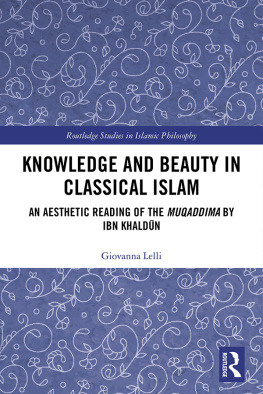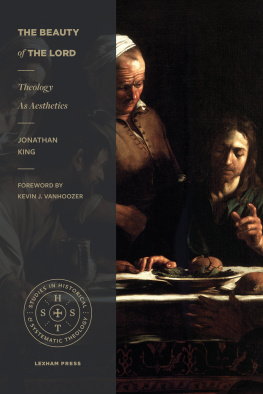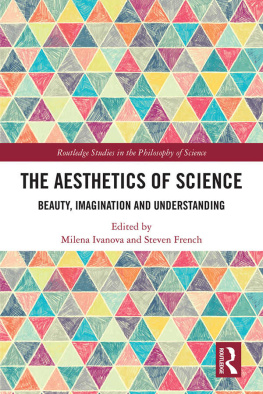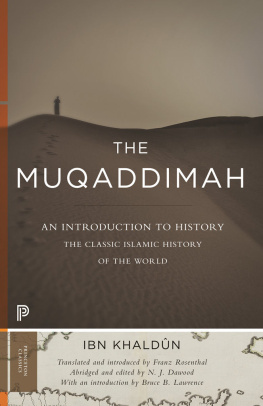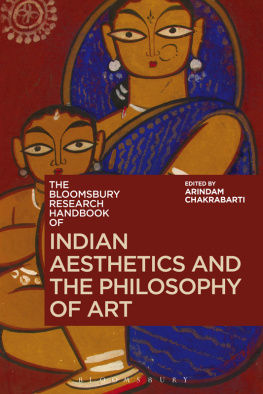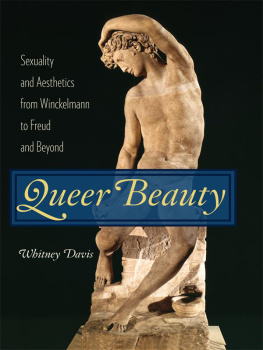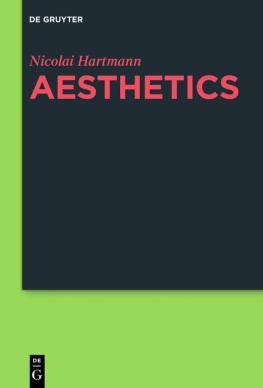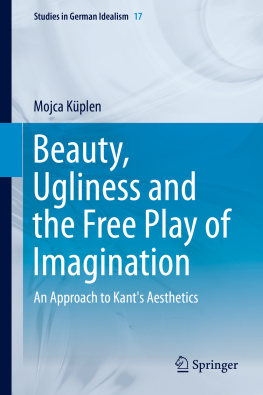Table of Contents
Guide
Print Page Numbers
Knowledge and Beauty in Classical Islam
This volume offers an aesthetic reading of the Muqaddima by Ibn Khaldn (d. 1406), a text that has been studied up to the present as a work on historiography. It argues that the Muqaddima is also a comprehensive treatise on classical Arab-Islamic culture and provides a picture of classical Arab-Islamic aesthetics in its totality.
The theme of the book is the intrinsic connection between beauty and knowledge in the Muqaddima. Whenever Ibn Khaldn deals with the problem of knowledge and science, he also deals with the problem of sensual beauty as an instrument or an obstacle to attain it. Ibn Khaldns philosophy of history is necessarily also an aesthetics of history. His key-notion of group feeling, the physical, ethic and aesthetic virtue of Bedouin societies, is at once the origin of the ascent of centralised States and the cause of their ruin. It represents a tragic contradiction that applies to the history of the Maghreb but then takes a universal value. It reflects a range of other contradictions inherent to the system of classical Arab-Islamic aesthetics. These contradictions undermine the aesthetic system of the Muqaddima from within and provide decisive elements for the emergence of modern aesthetics.
Offering a comparative approach, the volume is a key resource to scholars and students interested in Arabic and Islamic studies, philosophy, aesthetics and global history.
Giovanna Lelli has been a visiting professor of Arabic and Islamic studies at the Universities of Gent and Leuven (KUL). Her interests are interdisciplinary, particularly the comparative studies of the civilisations that flourished around the Mediterranean Sea in the Middle Ages on common Hellenistic roots. She also pursues a reflection on the problematic relationship between the classical heritage and modernity in the Arab-Islamic and the Western world from a global historical perspective.
Routledge Studies in Islamic Philosophy
Series Editor: Oliver Leaman, University of Kentucky
The Routledge Studies in Islamic Philosophy Series is devoted to the publication of scholarly books in all areas of Islamic philosophy. We regard the discipline as part of the general philosophical environment and seek to include books on a wide variety of different approaches to Islamic philosophy.
Avicennas Al-Shifa
Oriental Philosophy
Sari Nusseibeh
Becoming a Genuine Muslim
Kierkegaard and Muhammad Iqbal
Sevcan Ozturk
Al-Ghazali and the Divine
Massimo Campanini
The Philosophy of Religion in Post-Revolutionary Iran
On an Epistemological Turn in Modern Islamic Reform Discourse
Heydar Shadi
Analytic Philosophy and Avicenna
Knowing the Unknown
Mohammad Azadpur
The Political Philosophy of Mulladr
Seyyed Khalil Toussi
Knowledge and Beauty in Classical Islam
An Aesthetic Reading of the Muqaddima by Ibn Khaldn
Giovanna Lelli
For more information about this series, please visit: www.routledge.com/middleeaststudies/series/RSINIP
Knowledge and Beauty in Classical Islam
An Aesthetic Reading of the Muqaddima by Ibn Khaldn
Giovanna Lelli

First published 2021
by Routledge
2 Park Square, Milton Park, Abingdon, Oxon OX14 4RN
and by Routledge
52 Vanderbilt Avenue, New York, NY 10017
Routledge is an imprint of the Taylor & Francis Group, an informa business
2021 Giovanna Lelli
The right of Giovanna Lelli to be identified as author of this work has been asserted by her in accordance with sections 77 and 78 of the Copyright, Designs and Patents Act 1988.
All rights reserved. No part of this book may be reprinted or reproduced or utilised in any form or by any electronic, mechanical, or other means, now known or hereafter invented, including photocopying and recording, or in any information storage or retrieval system, without permission in writing from the publishers.
Trademark notice: Product or corporate names may be trademarks or registered trademarks, and are used only for identification and explanation without intent to infringe.
British Library Cataloguing-in-Publication Data
A catalogue record for this book is available from the British Library
Library of Congress Cataloging-in-Publication Data
A catalog record has been requested for this book
ISBN: 978-0-367-89898-4 (hbk)
ISBN: 978-1-003-02190-2 (ebk)
Typeset in Times New Roman
by Wearset Ltd, Boldon, Tyne and Wear
Contents
I would like to express my most sincere gratitude to my dear friend Prudence Crane. Thanks to her refined culture, deep sensibility and skills, she has wonderfully translated this book from the original Italian into English.
In the Muslim civilisation, unlike the ancient Greeks, the theatre did not occupy the position of a cultural institution. Only folk theatre was represented. This is one of the reasons why Averroes, the great commentator on Aristotle, in his commentary on the Aristotelian Poetics (based, moreover, on an Arabic translation from the Syriac), rendered tragedy as panegyric (mad) and comedy as satire (hij), thereby transforming the Aristotelian text into a treatise on Arabic poetics. But would it be correct to say that the Muslims of the classical and pre-modern age (eighteighteenth century) had no knowledge of the tragic, understood as mans profound awareness of facing an irresolvable and painful conflict and thus did not produce aesthetic works that were similar in their function to Greek tragedy? I am convinced that quite the reverse is true.
Indeed, a magnificent example of tragedy is the Muqaddima by Ibn Khaldn (13321406), a much renowned text of Arabic historiography that we shall analyse in this book. The Muqaddima presents us with a profoundly tragic picture of the history of human civilisation (al-umrn al-bashar). Civilisations, in their primitive, nomadic phase are vigorous and strong, with a rude simplicity and beauty which is at once unconscious and ingenuous. However, they transform naturally and inexorably into settlements and cities until they become crystallised in State organisations, which are initially characterised by their prosperity and a flowering of the arts and sciences. Their peak is their maturity but also the beginning of their decline, according to a mechanism which neither God nor man can do anything to change.
The book known by the name Muqaddima (Prolegomena, Introduction) includes the real introduction and the first book of the three-volume work by the Arab historian Ibn Khaldn, a work that is usually known by its abbreviated title of Book of Examples (Kitb al-ibar).
Unlike other great classics of Muslim thought, the Muqaddima was only translated into a Western language in the nineteenth century. The Muqaddima has been greatly appreciated by scholars all over the world for the modern method of historiography that it uses. Ibn Khaldn is well aware of the novelty and the value of his historiographic method, which is both rational and empirical. He refuses to accept historical information on face value, without critical scrutiny, even when it comes from sources that are considered authoritative (

